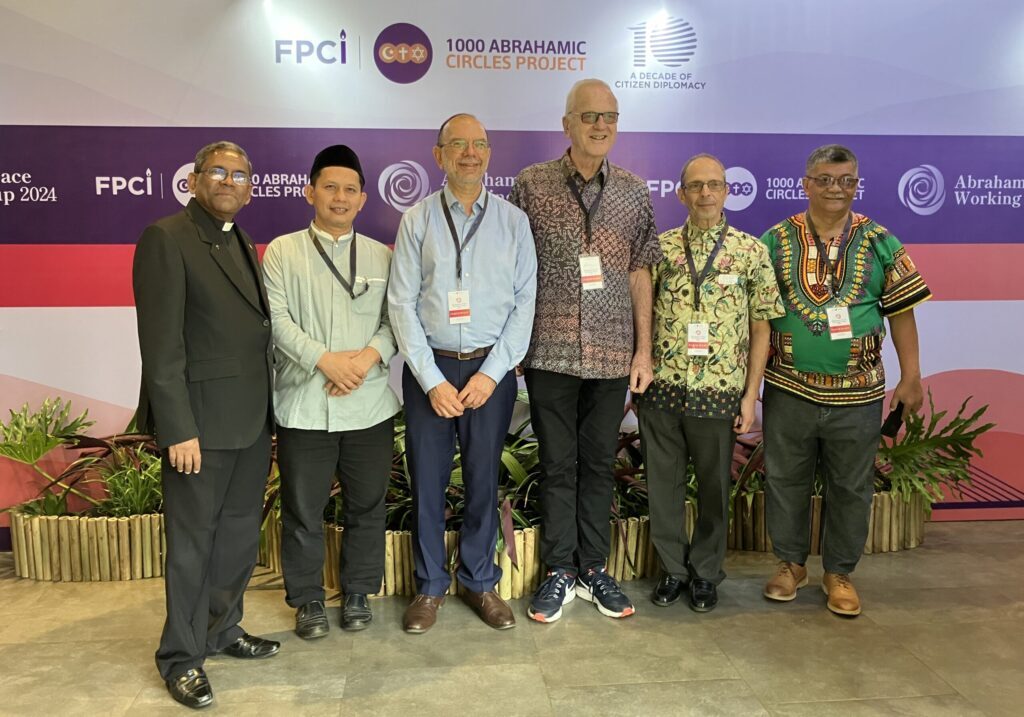Australia/Israel Review
Editorial: Talking Terrorism
Jul 28, 2009 | Colin Rubenstein
Colin Rubenstein
Another terror attack on an Asian hotel by violent Islamists has claimed more innocent lives, including those of three Australians.
At the same time, the Federal Government, assisted by the Victorian government, has launched an examination into the ‘Lexicon of Terrorism.’ Echoing a similar process in the United Kingdom, the inquiry is apparently deciding what terms police and governments should use in describing modern terrorism, so as not to insult or single out ethnic and religious communities in Australia.
The motivation for such an initiative is laudable. Indeed, some of the suggestions already made, including by federal Attorney-General Robert McClelland, such as new efforts to concentrate on incitement to terrorist violence, are timely.
However, it is important not to throw the baby out with the proverbial bathwater. Australia, the West and many other countries, including many in the Arab and Muslim world, are engaged, against their will, in a struggle with groups that use violence in the name of an ideology rooted in one interpretation of a major world religion. This reality must be stated clearly – it cannot be obfuscated.
A holistic approach to terrorism prevention is absolutely necessary – internationally, the priority must be to root out state support for terrorist groups, destroy terrorist safe havens and to prevent such groups from obtaining and moving around funds, arms and expertise. Domestically, we need to prevent terrorist attacks before they happen, with good intelligence, police work, and border controls; to help guide would-be Muslim radicals back to the Muslim mainstream; and to prevent the alienation and radicalisation of individuals or groups in the first place.
The Lexicon of Terrorism inquiry is largely about this last goal, and there is doubtless some potential for improvement in this regard.
Since 2001, Western countries have been remarkably successful in preventing attacks at home – London and Madrid notwithstanding. But despite this positive record, there have been some shortcomings in that some Muslim communities in these countries have felt increasingly alienated and misunderstood.
No Western country, including Australia, has intended any part of its Muslim communities to feel such alienation. Nor is it easy to point to many cases where Western political leaders failed to make it clear that they are not at war with Islam, and that a thorough-going distinction is being made between Muslims generally and that tiny minority who claim to carry out terrorist violence in the name of Islam. Nonetheless, that some alienation exists cannot be denied.
In this respect, some terms have had the effect of making many Muslims feel that they are being viewed as one-step removed from terrorists. Others may actually reinforce the messages terrorists and their radical allies are sending to the local Muslims.
For instance, dividing the Muslim community into “moderates” and “extremists” creates the perception that non-Muslims are judging who is a ‘good’ Muslim, and who is not. Moreover, in the context of the Islamic religion, being called a “moderate” would be no compliment – it suggests one’s faith and commitment to it is inferior to those of the “extremists.” Thus, such language can actually strengthen the appeal of violent Islamists who claim to represent true Islam.
Nonetheless, while we must find ways to minimise the appeal of radical Islamist messages, it would be both incorrect and dangerous to describe or treat the Islamist terrorism problem as purely one of crime, no matter how reprehensible, and of law enforcement. It is precisely this paradigm that created the preconditions for September 11. In addition to the fact that violent Islamists view themselves as warriors, not criminals, they cannot, for the most part, be deterred from their crimes by threats of judicial punishment.
The terminology of the violent Islamist phenomenon must make it very clear that this is not simply a legal or criminal justice problem. Otherwise, the public support needed by Australia and its allies for the range of actions necessary to counter it will not be generated. For instance, it has been suggested by some that each terrorist organisation ought to be also discussed either solely as a completely separate entity, or as part of the general phenomenon of “violent extremism”. Such an approach is deeply problematic. Organisations such as al-Qaeda, Jemaah Islamiah, Abu Sayyaf, Lashkar e-Toiba and others train together, provide or enjoy mutual funding and even share personnel and other resources. To underline this point, there is now reportedly evidence that al-Qaeda was involved in the latest terrorist bombings in Indonesia.
These organisations are united in their cause and united in believing that they are jointly waging a war. We need to recognise this – when we tackle one organisation, we are tackling all. Moreover, the roots of the violence of all of them is a shared ideology rooted in a non-mainstream radical interpretation of Islam. To defeat this phenomenon, it is not enough to defeat or deter the individual terrorist groups – we must, over time, defeat the ideology intellectually, just as Soviet-style Communism was eventually defeated.
The statements made by violent Islamists and their collective campaign against the world at large – the latest battle of which took place in the two Jakarta hotels – proves that they are in a war against us, even if we don’t want to be in a war against them. Anyone serious knows we are in the midst of a long campaign. While we should reach out to mainstream Muslims as partners, Australian state and federal governments should at the same time use language that portrays and reinforces this reality to Australians. There is no other way to ensure we will have the energy and moral clarity required to deal with this profound long-term challenge to our secure democratic future.
Tags: Australasia, Indonesia






